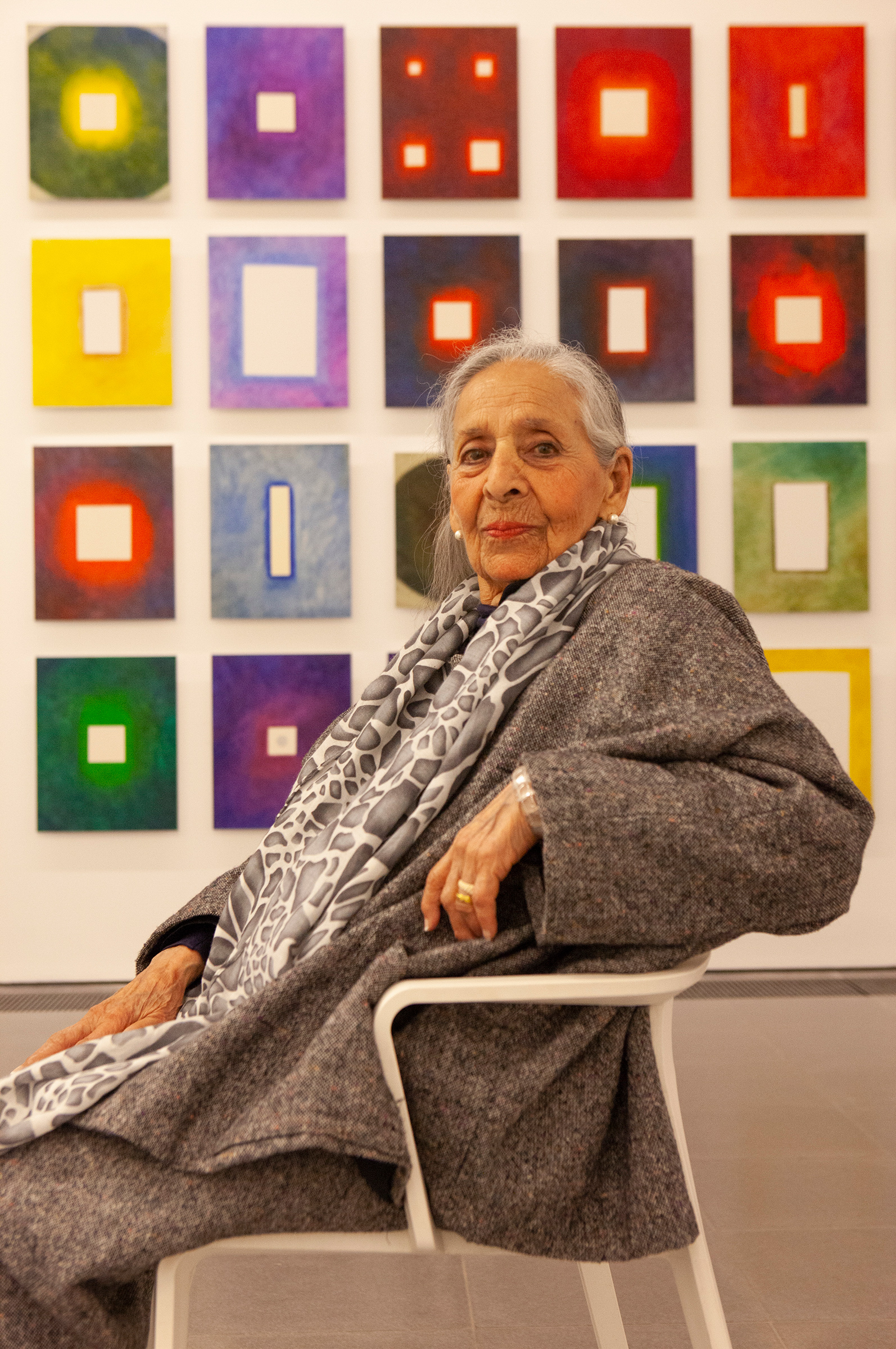
Luchita Hurtado and I met in early 2017 and soon after started to collaborate on an exhibition of her work for the Serpentine Galleries. My memories of her are ones of endless revelation. It was an incredibly intense dialogue. Each time we would speak, a new dimension of Luchita would become visible–the painting, the drawing, the photography, the poetry, the fashion.
Luchita–who died Aug. 13, just months before her 100th birth-day and only about a year after the opening of that show, her first international retrospective–connected in a holistic way to the natural world. She explored ecology in her painting and lived it in terms of not buying clothes but rather designing them herself. “We are a species, just like the dinosaurs, and just like the dinosaurs we are not in charge of the world like we seem to want to be. We have to think of all the living things in this world as our relatives,” she once told me. “Sometimes now I find myself touching trees and communicating with them, feeling that they’re feeling what I’m feeling. I talk to them, saying how beautiful they are and how sorry I am that they need water and I haven’t got any.”
In a lot of ways, Luchita showed us that we need to consider a more expansive understanding of life–not just from the short-term perspective of the clock but from the long-term perspective of the cyclical nature of time.
As told to Anna Purna Kambhampaty
Obrist is the artistic director of the Serpentine Galleries
More Must-Reads from TIME
- Donald Trump Is TIME's 2024 Person of the Year
- Why We Chose Trump as Person of the Year
- Is Intermittent Fasting Good or Bad for You?
- The 100 Must-Read Books of 2024
- The 20 Best Christmas TV Episodes
- Column: If Optimism Feels Ridiculous Now, Try Hope
- The Future of Climate Action Is Trade Policy
- Merle Bombardieri Is Helping People Make the Baby Decision
Contact us at letters@time.com